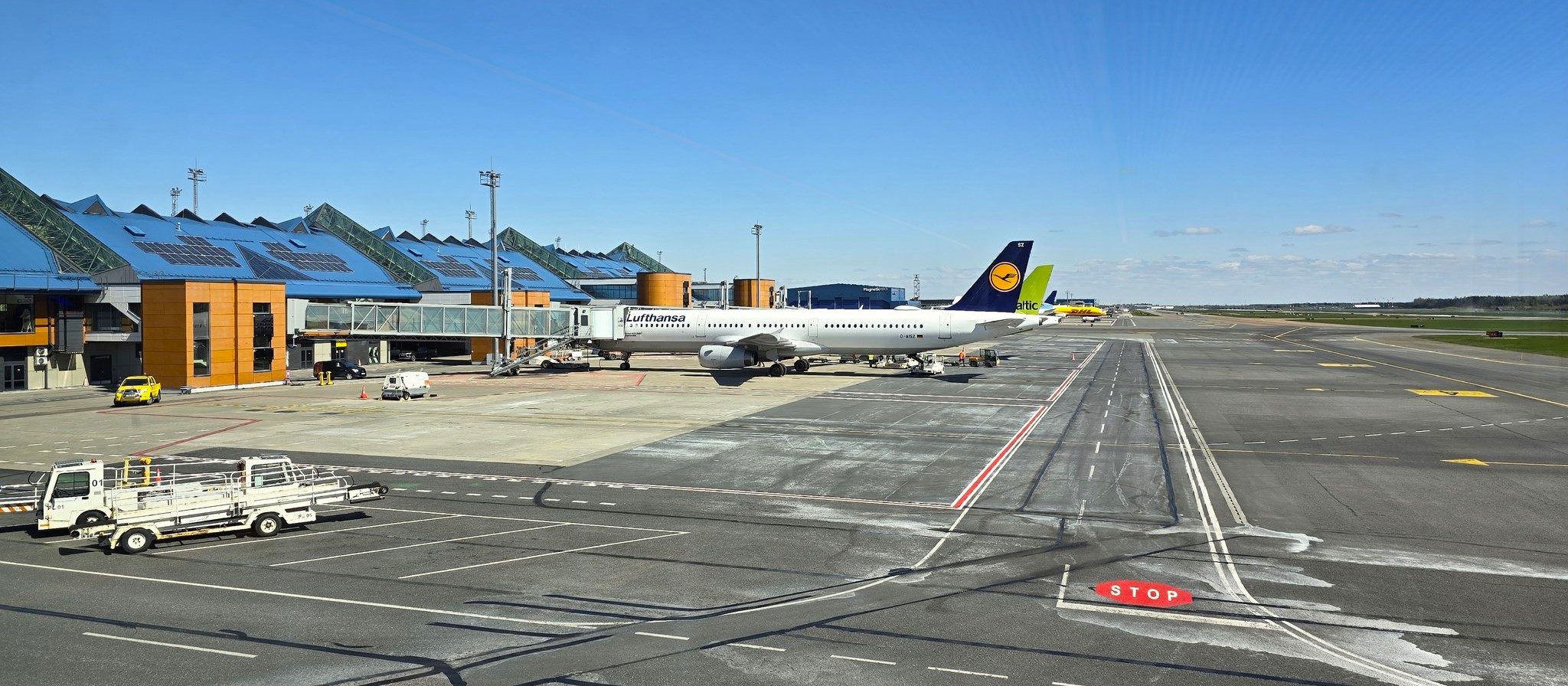


Tallinn Airport will introduce a security charge of €2.87 and increase the charge for passengers with special needs by €0.18. Both of these charges will be included in the prices of flights and apply at Pärnu, Kuressaare and Kärdla airports from 1 January 2025, and at Tallinn and Tartu airports from 1 April 2025.
As per a Tallinn Airport press release, the reasons for introducing the security fee are the obligation to ensure high quality of security service in a situation where airport costs have increased by almost 30 percent over the past year.
With this security charge, Tallinn Airport is one of the airports with the lowest security charge in Europe. Iceland has the highest security charge with €20.20. In Latvia the security charge is €5.96, in Finland €5.71, while in Lithuania no security charge has yet been introduced.
The charge for passengers with special needs will be €0.48 per departing passenger, and the reason for changing the charge is the increase in the number of users of the service for passengers with special needs and the resulting increase in costs. Airports are required by law to consult airlines on airport charges every year.
Riivo Tuvike, CEO of AS Tallinna Lennujaam, said:
"We’ve discussed the change in charges with all airlines flying to Tallinn and it’s clear that no airline was happy to hear about the security charge, but they understand the change and the reasons for it and our prices remain competitive,"
"We raise prices as little as possible and we believe that a €3 increase in the fare will not make people change their travel plans."
In the year 2019, Tallinn Airport set a record with over 3.2 million passengers. While the pandemic caused a sharp decline, the situation has significantly improved. With several months remaining this year, passenger numbers are now around 3 million.
Apart from the the obligation to ensure the high quality of the security service in a situation where airport costs have increased by almost 30% over the last year, the airport needs to be ready to invest in infrastructure development in the coming years, thus ensuring a stable and sustainable financial position to finance future development plans.
Estonia state is providing Tallinn Airport with €9.5 million in support this year, part of a project to make Tallinn Airport a more attractive destination to airlines.
Also, it's being stated that the previous administration had allocated €14.5 million for the period 2024–2027, to stop the airport from hiking any fees. However, Tallinn Airport says it has not yet received these funds.
Infrastructure Minister Vladimir Svet (SDE) noted the state provides €10 million in annual support to cover the costs of maintaining regional airports, security services, and to partly financing route subsidies.
"In any case, the airport has to ensure the safety of passengers, so we cannot compromise on security issues," Tuvike said. "In order to cover security costs, which are increasing at the same rate as the number of passengers, the solution is to introduce a security charge. Targeted financing and security charges don’t fully cover the costs of security and the difference is covered by the airport," Tuvike explained, adding that most EU countries have security charges because the states themselves cannot fully cover the costs of airport security and emergency services.
"The priority for the next few years is the expansion of the passenger terminal, as the passenger terminal built to serve 2.8 million passengers is reaching its capacity limit," said Riivo Tuvike.
"This year, a record 3.5 million people will travel through the airport and the number is expected to grow further in the coming years, and we’ll start expanding the passenger terminal already next year. This investment amounts to almost €53 million."
"The airport is an essential infrastructure for the circulation of the economy and must not remain a bottleneck for economic development."
Minister of Infrastructure Vladimir Svet signed an agreement to invest €14.4 million in increasing the energy efficiency of Tallinn and regional airports from the CO2 funds.
The funds will help improve heating solutions in buildings, make electricity networks more efficient, and carry out other work needed to make energy use at Estonian airports more sustainable. €9.3 million will be invested in energy efficiency and power grid upgrades at Tallinn Airport and €5.1 million in renovations at Tartu, Kärdla, Kuressaare and Ruhnu airports and terminals.
"We can only use the funds allocated by the state for specific purposes to make the heating solutions and electricity networks of the airport buildings more efficient," added Tuvike.
The reconstruction work will be financed from the proceeds of greenhouse gas emissions trading and paid to Tallinn Airport in instalments between 2024 and 2027.
As per the Infrastructure Minister Vladimir Svet (SDE) , the Government support is to be slightly reduced due to upcoming budget cuts, and, Minister Svet said, the airport may in any case not be able to avoid increasing fees.
Display picture courtesy : Clare Fella
